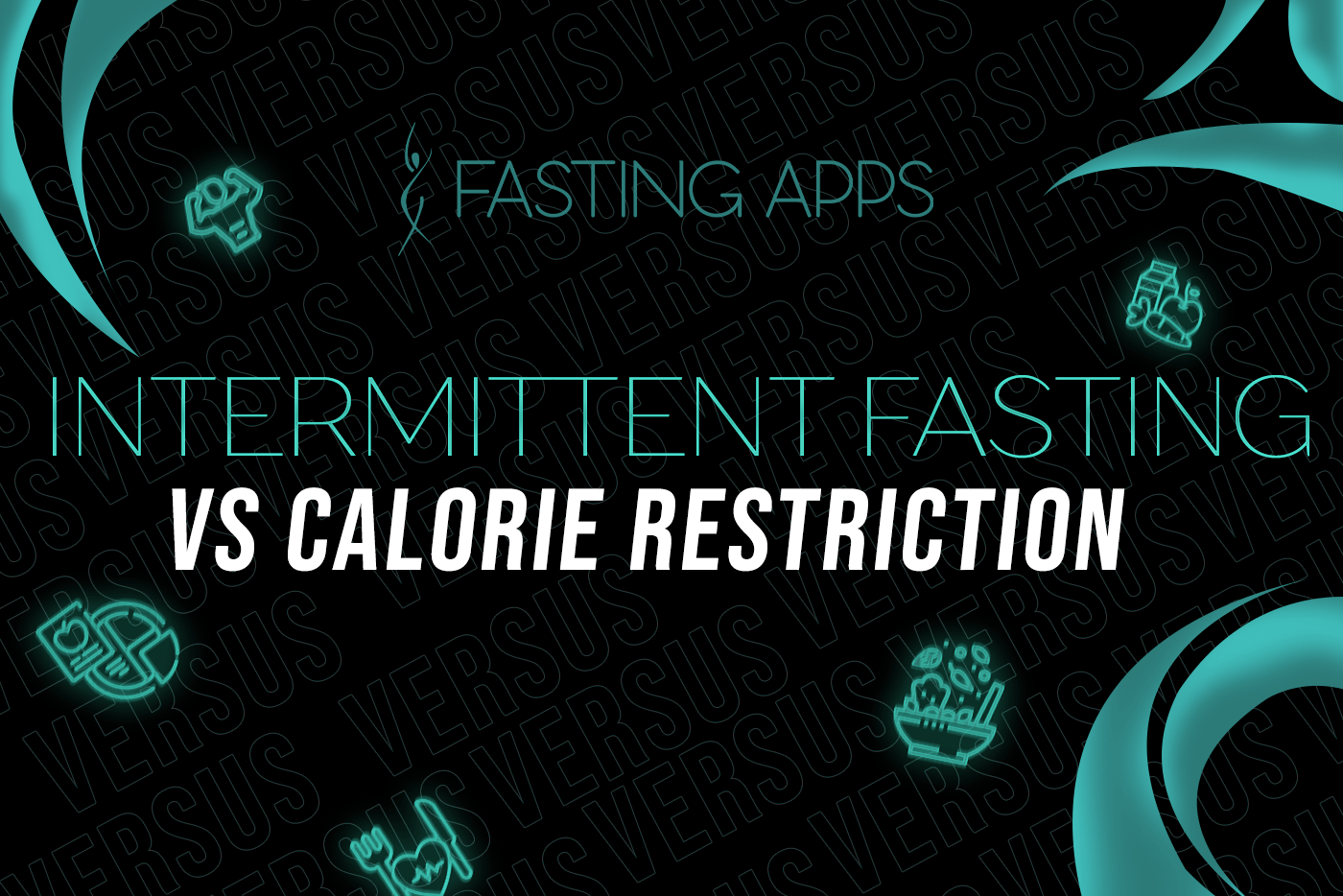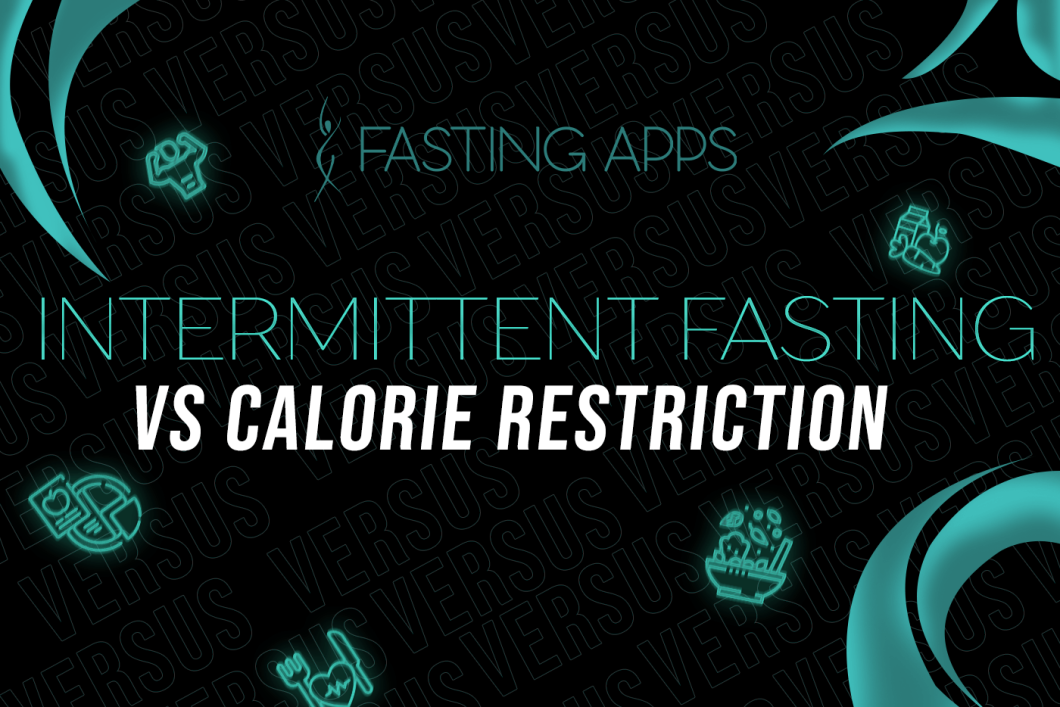Intermittent Fasting vs Calorie Restriction
Written by Andrew Brewer. ⚕️Reviewed and fact checked by our medical team.

Intermittent fasting is popular because it doesn’t technically restrict what you eat. Instead, it focuses on when you eat, limiting your calories to a certain window. This fasting window varies on the amount of time - 12 is a popular entry point, while the serious fasters can go up to days without food.
On calorie-restrictive diets, you eat throughout the day, but you only focus on a certain number of calories. Unlike keto, these are spread throughout all the nutritional categories. You’re not limited to the types of foods you eat, just the amount. It offers more flexibility than some other popular diets.
Key Takeaways
Intermittent fasting and calorie restriction are two different approaches to dieting, with intermittent fasting focusing on when you eat and calorie restriction focusing on the number of calories you eat.
Both approaches can be effective for weight loss, but intermittent fasting may be more effective at providing overall health benefits, while calorie restriction may be more effective at improving insulin levels in pre-diabetic and insulin-resistant patients.
Intermittent fasting may help maintain or even increase muscle mass due to the focus on protein intake, while calorie restriction may cause a loss of muscle mass.
Regardless of which approach you choose, it's important to be strategic with your meal choices and focus on protein, fiber, and healthy fats to support your overall health and wellbeing.
The choice between intermittent fasting and calorie restriction will depend on individual goals and needs, and consulting with a healthcare professional can help determine the best approach for you.
Benefits of Intermittent Fasting
Intermittent fasting is popular because it’s much more than a weight loss program. In addition to helping you drop weight, you will also help control your blood sugar, improve your gut health, reduce disease risk, and so much more. Your body will regenerate, helping promote cellular turnover to help you look and feel better. You’ll start to feel less hungry and crave less sugar - so if you have a sweet tooth, this plan is for you! Intermittent fasting can even help you sleep better and live longer! Because of this, intermittent fasting is more than a weight loss program. It’s a lifestyle.
Benefits of Calorie Restriction
Calorie restriction doesn’t put limits on the type of foods you can eat or when you can eat them. Instead, it focuses on the amount of food you can eat. Once you’ve hit your limit for the day, you’re done, so it’s important to be strategic. Most studies on calorie restriction have been done on animals, but early results suggest that it improves your metabolism, improves your life span, and helps prevent disease, including heart disease and diabetes. Calorie restriction is much more than a diet, and when you change your eating habits, you can truly change your life.
What are the Differences?
Let’s explore the key differences between intermittent fasting and calorie restriction.
Diet
Intermittent fasting focuses on when you eat. You can choose different fasting periods based on the results you want to achieve. Calorie restriction focuses on the number of calories you eat - not what or when. On both of these, you can theoretically eat what you want, though it will defeat the purpose. You still want to be strategic with your meal choices, focusing on protein, fiber, and healthy fats.
Unfortunately, studies have found there’s no measurable difference in weight loss between the two. For subjects who were obese, they lost similar amounts of weight and body fat.
Improved Health
Studies show that intermittent fasting is better at providing overall health benefits by improving cellular resistance to disease. Additionally, it helps to change your metabolic rhythm, improving your sleeping pattern based on when your body is burning calories. The same studies suggest that calorie reduction could be more effective at helping pre-diabetic and insulin-resistant patients improve their insulin levels without medical intervention.
Muscle Mass
Intermittent fasting doesn’t make your muscles shrink, and in many cases, it helps them grow because you are jam-packing your diet with protein. Calorie restriction will have the opposite effect in most cases. Protein is typically high in calories, so you may avoid it while on calorie restriction diets. Instead, as your body is working on burning fat, it may also turn to your muscles while on calorie restriction, breaking them down to power base activities.
How to Choose?
What are you hoping to achieve by dieting? If weight loss is your goal, both are effective. If you are looking to improve your overall health and wellbeing, then you may want to consider intermittent fasting. For those who are looking to treat diabetes, then calorie restriction may help.
Our #1 Recommendation: DoFasting
It's easily one of the best fasting apps that offers plenty of features for anyone!
Use coupon code: 10app to get an extra 10% off all memberships.
FAQ
How does intermittent fasting work?
Intermittent fasting works by restricting the time you can eat, which helps reduce overall calorie intake and promote weight loss.
How does calorie restriction work?
Calorie restriction works by reducing the number of calories you consume in a day, which creates a calorie deficit and promotes weight loss.
What are the benefits of intermittent fasting?
Intermittent fasting has been shown to promote weight loss, improve metabolic health, increase longevity, and reduce the risk of chronic diseases such as diabetes and heart disease.
What are the benefits of calorie restriction?
Calorie restriction has been shown to promote weight loss, improve metabolic health, and reduce the risk of chronic diseases such as diabetes and heart disease.
Which is better for weight loss, intermittent fasting or calorie restriction?
Both intermittent fasting and calorie restriction can be effective for weight loss. However, studies have shown that intermittent fasting may be more sustainable and easier to stick to in the long term.
Which is better for improving metabolic health, intermittent fasting or calorie restriction?
Both intermittent fasting and calorie restriction can improve metabolic health, but intermittent fasting may be more effective in improving insulin sensitivity and reducing inflammation.
Can intermittent fasting and calorie restriction be combined?
Yes, intermittent fasting and calorie restriction can be combined to create a diet that restricts both the time you can eat and the number of calories you consume.
Are there any risks associated with intermittent fasting or calorie restriction?
Both intermittent fasting and calorie restriction can have risks for certain individuals, such as those with eating disorders or certain medical conditions. It is important to consult with a healthcare professional before starting either diet.

